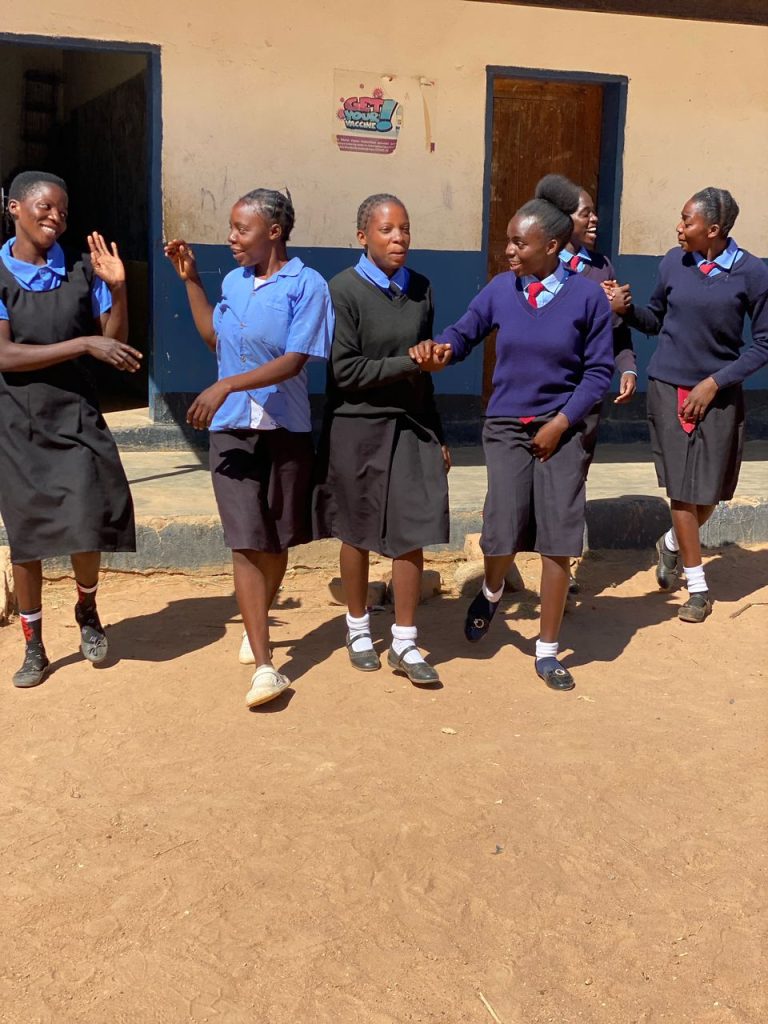A decade of Zambia’s Comprehensive Sexuality Education Framework: tangible wins amidst existing gaps
 02 September 2024
02 September 2024

The writer interviews Mr. Costern Kanchele, Executive Director of FAWE Zambia to better understand the gains and the gaps of 10 years of CSE in Zambia.
In 2013, the Comprehensive Sexuality Education (CSE) Framework was developed and launched in Zambia as part of the country’s revised education framework to address soaring numbers of early pregnancy in schools, among other negative Sexual Reproductive Health (SRH) trends in the learners’ demographic. The following year, teachers’ implementation of a nationwide program for the framework would begin in the learning institutions.
Ten (10) years after its development, the Make Way programme in partnership with the Forum for African Women Educationalists of Zambia (FAWEZA) conducted an assessment of the CSE framework’s impact in primary and secondary schools.
Among the impact stories is one of Kabuyi Mangaya from Zambezi district in North Western Zambia. At the age of 16, Kabuyi got pregnant and subsequently dropped out of school. Today, she is a youth SRHR leader, working alongside the Make Way programme’s youth panel members in Zambezi District to sensitise and advocate for other young women to access SRHR information and services.
For many other young people of Kabuyi’s age, incorporation of CSE into the Zambia schools curriculum has played a critical role in them avoiding unwanted pregnancies and staying in school.
In the assessment’s Focus Group Discussions at select schools from the districts of Lusaka, Kazungula, Kalomo, Monze, Kitwe and Zambezi, respondents testified to having gained valuable knowledge on issues including Sexually Transmitted Infections (STIs) and puberty. A safe and judgment free environment to talk about these issues was noted as a recurring advantage of the CSE.
Make Way advancing CSE Implementation
Through its partnership with FAWEZA, the Make Way programme in Zambia is actively supporting the framework’s implementation through their youth engagement in Safe Spaces created in selected communities around the country. Here, young people can have peer-to-peer conversations, sharing their SRHR concerns and experiences without fear of rebuke from their elders.
The programme has also taken up the training of teachers and adolescent Focal Point Persons also known as Teacher Mentors – an initiative that FAWEZA’s Executive Director, Costern Kanchele says is a commitment to ensuring trainees are equipped to deliver CSE effectively and support students’ SRH needs.
Safe Spaces provides a prejudice-free environment for youth and vulnerable groups to commune and share about their lived experiences through SRHR, creating an avenue for peer-to-peer advocacy among participants, and boosting their psycho-social wellness.
Religious opposition to CSE
Despite current CSE implementation having registered tangible results, the 2023 CSE Impact Report, commissioned by the Make Way Programme, found existing gaps, particularly where teachers, parents and students alike perceive sexuality education as a threat to their strongly held religious beliefs. This gap is also a widely registered barrier to SRHR realization in many contexts where religious institutions are a mainstay for those societies.
According to Mr. Kanchele the most recurring religious opposition to CSE in Zambia is the sexuality word in the “Comprehensive Sexuality Education”. He says that is due to Religious Leaders’ aversion to diverse sexualities and genders, some religious groups consider the term problematic as it is believed to be against Biblical teaching.
As a result around 2020 through to 2021 there was serious opposition to teaching of CSE in Zambian Schools by Religious Leaders, however, after a series of negotiations, the curriculum has been renamed: Life Skills and Health Education.(LSHE). It will continue to be implemented in schools under the afore mentioned new name.
“The new name is more palatable to religious communities, demonstrating that the education focuses on one’s overall health, wellbeing and life skills, rather than solely on sexuality.”
“Continued engagement and re-education of religious leaders helps to clarify the benefits and factual basis of CSE, emphasizing its role in preventing violence and promoting healthy relationships among youths,” he adds.
The Make Way programme and FAWEZA partnership also engages the clergy in advocacy initiatives, as evidenced by the community safe spaces created in churches, and intersectional SRHR advocacy toolkits tailored to religious contexts. One such tool is the Intersectional See-Judge-Act (ISJA). The tool, based on Christian tradition, allows for participants to identify SRHR issues, relate them to religious texts through an intersectional framework and commit to deliberately acting on them, creating new knowledge and inclusive perspectives for SRHR justice.
In a country where teenage pregnancy rates still rank high at Primary and secondary school levels, with over 16,000 cases registered in 2020, concerted efforts towards providing comprehensive education on sexual reproductive health are vital. Make Way and FAWEZA are making headway in that endeavour.



